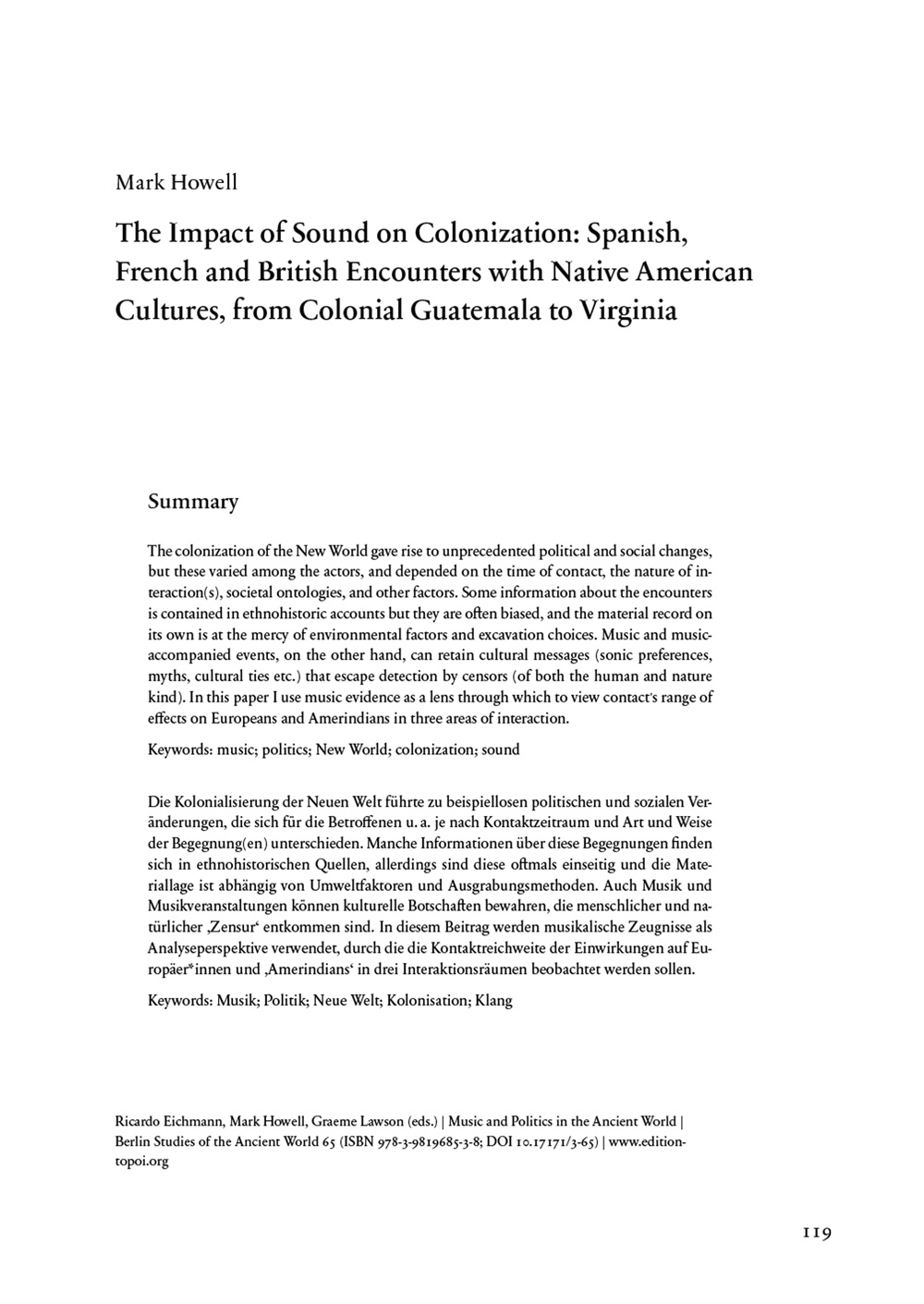The Impact of Sound on Colonization: Spanish, French and British Encounters with Native American Cultures, from Colonial Guatemala to Virginia
Mark Howell
This paper explores the socio-political and religious dimensions of sound and music making by comparing two culturally distinct but intimately connected time periods related to the same place: the Valley of Mexico. First, Aztec practices of musical domination and control over conquered societies in the Late Postclassic period of Mesoamerica (1325 to 1521 CE) are revised. Then the Hispanic strategies of musical domination and control over the conquered Aztecs in the Early Colonial times (1521 to 1600) are reviewed and compared with the Aztec model. The paper asks which differences are present and whether there are structural similarities in musical conquests.

